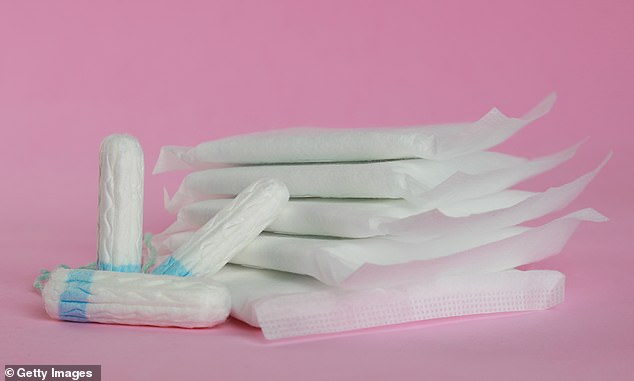The FDA has officially launched an investigation into heavy metals found in tampons.
The agency announced a two-pronged approach that will include conducting a new study to see whether heavy metals from tampons are actually released when they are used and outsourcing a review of past research to an independent group of researchers.
This follows a bombshell Berkeley study that found heavy metals like lead and arsenic (chemicals linked to brain damage, kidney disease, miscarriages and cancer) in 30 different tampons from 14 major brands.
The agency officially launched the review on Tuesday, following last week’s announcement by Washington Sen. Patty Murray, who spearheaded the push.
Reviews have found heavy metals in tampons and other period products, such as menstrual underwear.

Last week, Senator Murray announced the FDA’s decision to investigate tampon safety, ahead of the agency’s official press release. Senator Murray had previously sent a public letter to the agency urging such a study to be conducted.
“The FDA is aware of concerns about tampon safety after a 2024 study found metals in tampons during lab testing. We want the public to know that before tampons can be legally sold in the U.S., they must meet FDA requirements for safety and effectiveness,” The FDA announcement saying.
Tampons are currently regulated as a medical device, meaning that before they are sold, they are tested by authorities for absorbency, strength, integrity and whether or not they promote the growth of harmful bacteria.
It is unclear whether they perform specific tests for heavy metals.
The products that are approved are used by millions of Americans, somewhere between 47 and 80 percent of women choose to use the products during their time of the month, the research estimates.
The FDA said its investigation will aim to address questions that the Berkley study, published earlier this year, did not address.
“While the study found metals in some tampons, it did not test whether tampons release metals when used,” the agency said.
‘The metals that are released, absorbed into the vaginal lining and enter the bloodstream during tampon use were also not analyzed.’
The Berkeley study, published in July, found 16 types of heavy metals, including lead, arsenic, chromium and copper, in the 30 tampons they tested from 14 different brands.
The researchers declined to comment on which brands were tested, but shared that all are available at major retailers in the US, UK and parts of Europe.
It is not clear exactly how heavy metals get into these products.
The Berkeley researchers noted thatCotton plants, used to make tampons, have been shown to absorb heavy metals from soil, pesticides, fertilizers and wastewater.
It’s also possible that these chemicals were introduced into the products during the manufacturing process. In the factory, tampons are sprayed with chemicals to bleach, deodorize and disinfect them.
Although research has yet to investigate how heavy metal exposure through tampons might affect health, there is a long history of studies on other heavy metal exposures.
That’s because manufacturers often used heavy metals for a wide range of products, from lead pipes to arsenic-dyed fabrics.
Patterns emerged as those who frequently ate, inhaled or came into contact with these chemicals developed health problems such as developmental delay, liver and kidney disease, dementia, miscarriages and cancer at a higher rate than those who were not exposed to heavy metals.
The Berkeley researchers wrote that the vagina, which is made of “highly absorbent tissue,” theoretically has the potential to absorb these heavy metals from tampons, if they are released during use.
If this is the case, it could lead to “systemic exposure”: the health effects of such exposure are unknown.


